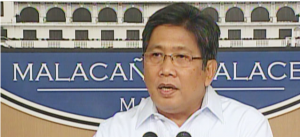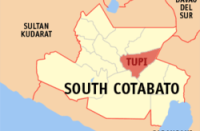
(Eagle News) — The Philippines saw no reason to criticize Japanese Prime Minister Shinzo Abe’s speech in commemoration of World War II’s 70th anniversary unlike China and South Korea which were critical of Abe’s speech.
In a statement released Saturday, Communications Secretary Herminio Coloma, Jr. said Malacañang supports Abe’s statement, as it encourages nations to have “proactive contribution to peace.”
“We support Prime Minister Shinzo Abe’s advocacy of ‘proactive contribution to peace’ based on the primacy of the values of freedom, democracy and human rights, upon which the strategic partnership between the Philippines and Japan is founded,” Coloma said.
“Japan’s reflection upon the lessons of war is linked with its determination to renounce violence, threat or force as means of settling international disputes, and to pursue peace as the path to long-term global prosperity,” he added.
Coloma also noted the significance of Japan’s commitment “to develop a free, fair and open international economic system” while providing continuing assistance to developing countries, as well as to lead in championing respect for women’s human rights.
China and South Korea evidently held a different view as both countries railed at the absence of a fresh apology from Abe, despite expressing his “profound grief” for the millions killed during the war.
Both China and South Korea still feel Abe lacked sincerity.
The Japanese leader was also quoted as saying that future generations who have nothing to do with World War II should not be predestined to apologize for the mistakes of their forefathers.
“I think one point that we agree with along with the rest of the world on the point of Japan (is) that we must never again repeat the devastation of war, and that was very clearly stated there,” said Deputy Presidential Spokesperson Abigail Valte for her part.
Speaking over the state-run dzRB, Valte said “Japan has acted with compassion and in accordance with international law, and has more actively and more positively engaged with the region and the world after the war.”
“I think—and the President has mentioned this also during his visit to Japan—that, in particular, the relationship of the Philippines with Japan has been characterized by trust and unfailing support in so many fields.
We have worked closely with the international community and we will continue to do so, not only in the recovery and the rebuilding after the war, but also in initiatives that would establish and promote international norms and institutions that would help ensure global peace, stability and prosperity,” Valte said. (with a PND report)







